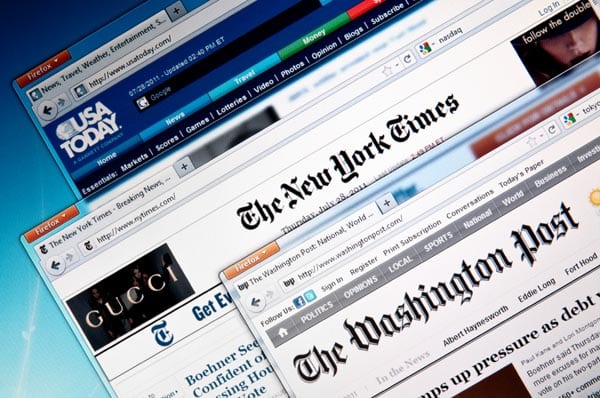The Ultimate Guide To Popular News
The Ultimate Guide To Popular News
Blog Article
All About Popular News
Table of ContentsExcitement About Popular NewsPopular News Can Be Fun For AnyoneThe Buzz on Popular NewsAll About Popular News9 Easy Facts About Popular News ShownNot known Factual Statements About Popular News
HELOCs, on the various other hand, provide you with an opportunity to borrow more money at lower rates of interest for longer durations. "Generally, a HELOC will be much more flexible than a personal finance, and they regularly lug a lower rate of interest rate," states Whitehead. He adds, "In my experience, people that do not have a home, get a personal lending when they need cash, and those that have a home will make use of a HELOC or comparable kind of financing when they are in the very same place." A is a sort of home loan that includes refinancing your existing mortgage for greater than you owe and obtaining the distinction in cash.
If you have less-than-perfect debt, you could be thinking about a. Nevertheless, they're typically relatively small and expensive. Some states have actually also deemed them predatory and prohibited. If you own a home and have sufficient equity, a HELOC can use a far better solution. HELOC loan providers usually have flexible eligibility demands like payday lenders however use bigger car loans, reduced rates of interest and longer repayment terms.
Lenders supply all of the above benefits in exchange for a lien on your home. That suggests if you don't make all your repayments on schedule, your home could go into repossession. Consequently, it is very important to be confident that you can make your HELOC payments in a timely manner and as agreed
The Of Popular News
To get the most effective offer, make sure to shop around and compare elements like lending amounts,, fees, payment periods and rates of interest.
The significant infant boom generation is reaching old age (many are already there), older people are living longer, and there are less more youthful people going into the workforce to pay into the system. Excess cash have actually been put right into a trust fund for many years, and the system will need to begin dipping into these funds within a year or 2.
Then, 58% of retirees stated Social Security was a major income source, essentially the exact same as today. In each of the previous 17 years, Social Security has topped the listing of significant incomes for retired people. An important element of Social Safety is. Basically, the reduced the overall income a retired person records, the more crucial Social Security is as a component of that earnings.
Our Popular News Statements
For these individuals, evidently, Social Protection is the mass of their retired life. Even among retirees making $50,000 to much less than $75,000 a year, regarding half (49%) report Social Security as a significant income source. (Social Safety is much less likely to be a major income among retirees making $75,000 a year and more, yet this fortunate team is just about 22% of all retired people.
A Quinnipiac poll earlier this year revealed that much less than fifty find percent of Americans, 45%, thought that the Social Safety and security system would certainly have the ability to pay "a benefit" when they were qualified to receive it ("a" advantage could in concept be as low as a buck a month, obviously) (Popular News). A Pew Study poll last December revealed that 16% of Americans thought there would certainly suffice cash to offer advantages to older Americans when they prepared to retire, an additional 42% said there would certainly have to be lowered advantages, and 42% said there would not suffice money in the system for them when they retired
More than 6 in 10 of those under 50 believed that they would certainly not be able to get a benefit. This is not new. Some 36 years earlier, a Gallup analysis reported that "63% of utilized Americans were afraid they may not obtain benefits whatsoever when they got to retirement age, while one more 16% thought benefits may not be just as good as they are now." Americans' issue concerning Social Security in the future is likewise noticeable from Gallup's yearly April survey asking nonretirees to forecast just how important a source of retired life revenue Social Security will be when they retire.
Some Known Questions About Popular News.
At the exact same time, Social Safety is barely a top-of-mind issue for the average American, either. The crisis in Social Security is not imminent, checks are still getting here, and much less than one-half of 1% of Americans discuss Social Safety and security when we ask the public, month after month, to call one of the most essential problem facing the nation.

Older Gallup survey research discovered that a majority of Americans concurred with just two potential modifications out of the list checked-- restricting benefits for well-off retired people and requiring higher-income employees to pay even more into Social Protection. A study (PDF download) done for the National Academy of Social Insurance coverage likewise showed support for elevating the important link earnings cutoff point where workers no more pay right into the system.
A Quinnipiac poll previously this year showed that much less than half of Americans, 45%, assumed that the Social Safety and security system would have the ability to pay "a benefit" when they were qualified to obtain it ("a" benefit might in concept be as low as a dollar a month, of program). A Pew Study poll last December showed that 16% of Americans assumed there would suffice cash to provide benefits to older Americans when they were all set to retire, another 42% said there would have to be lowered benefits, and 42% said there would not be sufficient cash in the system for them when they retired.
Getting My Popular News To Work
More than six in 10 of those under 50 thought that they would not be able to receive a benefit. This is not new. Some 36 years ago, a Gallup evaluation reported that "63% of employed Americans hesitated they might not get advantages at all when they reached old age, while another 16% believed advantages might not be just as good as they are currently." Americans' problem concerning Social Security in the future is additionally obvious from Gallup's yearly April study asking nonretirees to forecast how vital a resource of retirement revenue Social Safety will be when they retire.
At the very same time, Social Protection is barely a top-of-mind issue for the ordinary American, either. The situation in Social Safety is not impending, checks are still arriving, and much less than one-half of 1% of Americans mention Social Security when we ask the general public, month after month, to name the most crucial problem encountering the nation.
Earlier this year, Social Safety placed fourth in importance to Americans out of a list of 12 feasible top priorities for the head of state and Congress to manage, behind just education, healthcare and the economic situation. This placed it in advance of other concerns controling the political discussion today, including migration, climate change and earnings inequality.
Some Known Factual Statements About Popular News
Older Gallup survey research discovered that a bulk of view website Americans agreed with only 2 potential modifications out of the checklist tested-- restricting benefits for affluent senior citizens and needing higher-income employees to pay even more into Social Protection. A survey (PDF download) provided for the National Academy of Social Insurance likewise revealed support for raising the revenue cutoff factor where workers no more pay right into the system.
Report this page